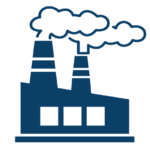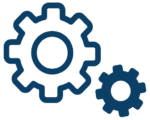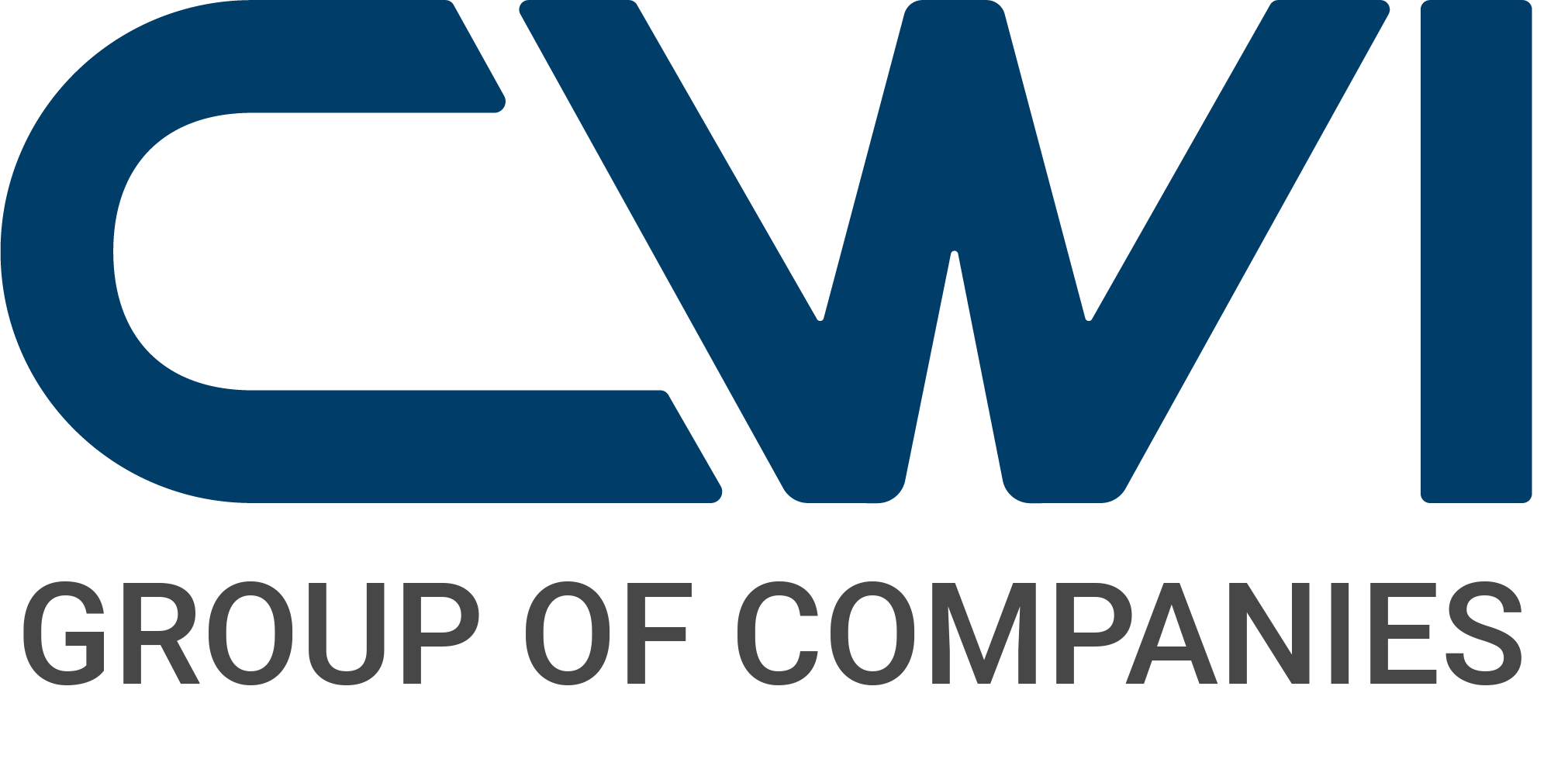Learn all about Wire, Wire Rope, Strand, Cable, Cable Assemblies, CNC Precision Parts Machining, Testing procedures and more.
From our history to the industries we serve and the certifications we hold for those industries, if you've got questions, we've got answers.
View our Frequently Asked Questions (FAQs) below:

Productos

Sobre nosotros

Industrias

Fabricación
Yes! Central Wire manufactures to the most modern industry regulations, notably ISO 9001:2015.
Yes, we do! On our official Company YouTube Channel you can browse videos on swaging, cable installation, facility overviews, and much more. Check out our YouTube channel using the button below.
Yes! Central Wire can manufacture custom CNC parts using a variety of different materials. Our CNC process features precise cuts, exact measurements, and top-of-the-line machinery to ensure we make you the right product every time.
Yes, we attend many trade shows and industry events. From airshows to fastener fairs to many other exhibitions, we love meeting other industry standouts, and of course our customers. Click on the button below to see a list of tradeshows we have or soon will be attending this year!
Yes! We serve this industry with tech-mesh™, copper wire and resistance wire being used in brewing, distilling, food processing and kitchen appliances.
Yes, we do, the FRANC robot in our Naples facility. This robotic arm performs more reliable operation, creates process consolidation and reduces lead times.
Yes! We have supplier quality requirements in place to ensure we only distribute the best product for your various projects. Visit our supplier quality page using the button below to learn more about our process.
CNC Machining is a simple process in which a machine makes precision cuts on a solid block material, based off the instruction of a CAD (computer aided design) file, customizing the final product to the exact needs of the consumer.
Military specification cables have been designed to be superior to commercial grade cables for performance parameters including breaking strength and durablity.
All MIL-spec codes begin with “MIL” which indicates military specification. The next set of letters can be:
– MIL-SPEC: Defense Specification
– MIL-STD: Defense Standard
– MIL-PRF: Performance Specification
– MIL-DTL: Detail Specifications
These letters are followed by a set of numbers that refer to specific specifications within the corresponding designator category within the military specification framework. Some examples of full code can be: MIL-STD-130, MIL-PRF-81705D, or MIL-DTL-22020E. For more information on military specifications, visit the Loos MIL-spec page using the button below.
On each of our product pages, there is a request for quote form at the bottom where you can input your specific product needs for us to quote.
The pricing of our products totally depends on the cost of the raw materials, scope of your project, wire requirements, testing and treatment requirements. The easiest way to find a price for a wire or cable project is to request a quote from us! The only products we have that are sold and priced online are our Brushking® tools, knives, cutters and swaging tools.
The centerless grinding process consists of a metal bar constantly being fed between a grinding wheel and a regulating wheel, which allows for exact customer dimensions and tolerances to be met.
Central Wire Group of Companies has a whopping 13 locations, across Canada, the United States and the United Kingdom. Visit our locations page using the button below to learn more about where CWI operates.
Yes, Loos is partnered with PartsBase. For those who don’t know, PartsBase is a product lookup for mil-spec products where all our inventory for cable and assemblies that have military-specification are listed.
Our specialty product lines include:
– ExerFlex™ fitness cable
– Canveryor® cable
– ReflexLite® safety cable
– Armor Wrapped cable
– Mooring and Oceanographic cable
– KobraKoils® high tension cable
– GD™-SUPA® Slicklines
– Tech-Mesh®
– Generation4™ Welding wire
Many of our product lines offer shape, material and size customization to ensure the product is fit to handle the specific application you will use it in. Visit our product pages to discover the customization possibilities we can offer.
There are many career opportunities available at Central Wire. From Canada to the US to the UK, we have positions to apply for including:
– Engineer
– Finance and Accounting
– Health and Safety
– Human Resources
– Maintenance
– Marketing
– Operations
– Production
– Quality Assurance
– Sales
– Technology
Feel free to head to our career page using the button below to apply to begin your career at Central Wire!
Many of our product lines are featured in aerospace, including:
– Bar stock
– Copper wire
– Cable Assemblies
– Spring Wire
CWI serves the oil and gas industry with tech-mesh™ products like:
– Structured and random packing
– Knitted wire mesh
– Custom demister pads
We offer quite a few coating options. Our polyvinyl chloride (vinyl) coatings boats strengths of abrasion and chemical resistance, while our polyethylene and polypropylene (nylon) coatings bring flexibility and moisture resistance. We also have a line Lolon® engineering plastic coatings, including
– Lolon® B: Offers superior abrasion resistance and can operate in temperatures from –40°F to 200°F.
– Lolon® F: Used commonly in pulleys in severe cold, this flexible coating withstands -65°F to 230°F.
– Lolon I: Less flexible but offering excellent chemical resistance, Lolon® I can handle temperatures from -65°F to 250°F.
– Lolon M: Available in multiple colors, resistant to various chemicals, tough to cut, and can handle temperatures from -60°F to 300°F. Lolon® M is a super-plastic.
An IST (Institute of Spring Technology) membership grants access to many research reports on spring wire and technology, technical support and access to the IST’s global database. Their mission is to assist businesses in the manufacturing of safe and reliable springs
The FBC™ System Compatible Program is a resource made available to manufacturers of ancillary products intended to be used with CPVC to help determine whether a product is chemically compatible with Lubrizol Advanced Materials’ FlowGuard®, BlazeMaster®, Corzan®, and products made with TempRite® Technology.
Our welding wire is suitable for various industries where the highest levels of safety and quality are required. This includes:
– Oil and gas
– Automotive
– Construction
– Marine
– Defense
And more! Learn more on our product page using the button below
Type 3.2 certification involves visits to the client facility by the third-party surveyor for visual examination, sample dimensional checks, confirmation that materials are traceable back to their ladle chemical analysis and validation that their properties meet material specification requirements.
A cable construction defines a large percentage of the final performance characteristics. The strength, flexibility, fatigue life and torque resistance all rely heavily on the way wires and strands are laid together in the finished rope. The constructions are defined by industry, wire style and flexibility, and more details on each available construction can be found using the button below!
The AS:9100 standard is a set of guidelines for implementing a Quality Management System for use by aviation, space, and defense organizations. (referred to as the aerospace industry) Visit our certifications page using the button below to see all of our certifications at our locations
Nos dedicamos a ofrecer productos adaptables y de primera calidad mediante prácticas de fabricación innovadoras y respetuosas con el medio ambiente. Creemos en el poder de la inversión en nuestro personal y en la expansión a nuevos mercados, todo ello con el objetivo de alcanzar la excelencia operativa y tener un impacto significativo en nuestros clientes y en las industrias a las que servimos.
Central Wire Group of Companies strives to become the global leader in wire and cable solutions, empowering our customers by unlocking infinite possibilities for their advancement and success.
DFARS (Defense Federal Acquisition Regulations Supplement) compliance indicate that for a US company to use specialty metals, the metals must be melted in the United States or a qualifying country. (Australia, Belgium, Canada, Denmark, Egypt, Germany, France, Greece, Israel, Italy, Luxembourg, Netherlands, Norway, Portugal, Spain, Sweden, Switzerland, Turkey, United Kingdom, and Northern Ireland) Specialty metals are outlined as:
– Steel with a maximum alloy content exceeding one or more of the following limits: 1.65% manganese, 0.60% silicon, 0.60% copper, or containing more than 0.25% of any of the following elements: aluminum, chromium, cobalt, columbium, molybdenum, nickel, titanium, tungsten, or vanadium.
– Metal alloys consisting of nickel, iron-nickel, and cobalt-based alloys containing a total of other alloying metals (except iron) over 10 percent, or titanium and titanium alloys or zirconium and zirconium base alloys
ESL standards are building product listing standards. ESL-1004 was granted to Loos & Co. In 2014, demonstrating that our seismic bracing cable met requirements for tension only bracing cable. ESL-1007 is another building code standard is another building code indicating that Loos seismic bracing cable has been tested and can handle critical applications
The IMDS (International Material Data System) is a global data repository that contains information on materials used by the automotive industry.
ISO 9001 is a globally recognized standard for quality management. It helps organizations of all sizes and sectors to improve their performance, meet customer expectations and demonstrate their commitment to quality. Its requirements define how to establish, implement, maintain, and continually improve a quality management system
Made in USA standards signify that “all or virtually all” of a product has been made in America. Not only does this mean that significant parts of the product must be from America, but that the processing and labor going into the product must also be of US origin.
PPAP (Production Part Approval Process) is a framework of requirements used in the automotive supply chain to establish confidence in suppliers and their manufacturing processes.
The Buy America Act requires 100% of a product to be manufactured in the USA, including the steel mill products. To fit 100% domestic requirements, the melting of the steel, the stranding, and the closing process must be performed within the USA. Typically, Loos sees requests for 100% domestic from the Department of Transportation (DOT) or when federal funds are involved.
The Buy American Act outlines that the cost of product supplies manufactured outside of the USA must not exceed 50% of the total price of the final product. Meaning, if various supplies for wire rope are manufactured outside of the US, those costs must be less than 50% of the wire rope’s final price. If steel is melted overseas, the manufacturer’s cost contribution has to exceed 50% of the overall cost in meeting the requirements of the Buy American Act.
– Wire is classified as a single, slender, flexible strand or rod made of any metal such as steel, copper or aluminum.
– Wire rope is composed of multiple wires or strands of wire that are twisted or braided together to form a thicker, stronger “wire”. Wire rope is often used for more durability, or more demanding applications.
– Cable is more of a broad term, encompassing various types of flexible or rigid structures made of one or more wires or strands bound together. It can be used to support structures due to durability, or in many other applications like our aircraft or fitness cable lines.
UL stands for Underwriter Laboratories, a third-party certification company that’s been around for over a century. They certify products to make the world a safer place for workers and consumers. Besides testing, they set industry standards to follow when innovating new products. In a nutshell, UL is a safety organization that sets industry-wide standards on new products. They continually check these products to ensure they’re up to these standards. UL testing makes sure that wire sizes are correct, or devices can handle the amount of current they claim to be able to. They also ensure that products are constructed correctly for the highest safety.
It entirely depends on the product line you’re looking for. Some of our products are off the shelf in-stock items like tools, standard cable sizes, etc. However, we also have many custom manufactured products. It totally depends on current material runs, availability of machines, etc. to determine accurate lead times. After an initial request for a quote and the scope of the project is determined, our sales team will be able to provide an accurate lead time for your project.
Central Wire Group of Companies stands out from the competition due to our high-performance specialty alloys, wide-range product lines, finishes and packaging, excellent customer service and quality certified manufacturing, ensuring our products are built to perform and last.
Loos seismic bracing is a great choice to replace rigid pipe bracing for a few reasons. Its ease of installation (can be installed individually), efficiency, and cost effectiveness make it the right choice for all applications. Different varieties have break strengths from 920 lbs. to 7000 lbs., promising performance in even the most demanding conditions.
Our widespread product lines use a wide variety of materials, from metals like stainless steel, copper and nickel to nylon and vinyl cable coatings, and so much more!
There are many metal alloys that are resistant to heat. These include:
– Copper nickel alloys
– Nichrome (nickel-chromium) alloys
– Chrome aluminum alloys
– Copper zinc alloys
– Phosphor bronze alloys
– Silicon bronze alloys
Yes, we proudly provide products for military and commercial grade aerospace applications.
A few product lines are in the medical industry, notably fine wire in medical instruments and copper wire used for its antibacterial capabilities.
Central Wire offers many testing services, both destructive and nondestructive. These include:
Destructive:
– Tensile Testing (ASTM A370)
– Torsion Testing (ASTM A938, ISO 7800)
– Cold Bend Testing (ASTM A313, A370, ISO 7801)
– Coiling Testing (ASTM A370)
– Wrap Testing (ASTM A370, ISO 7802)
– Metallography (ASTM E3, E407)
– Hardness Testing (ASTM E384, E92, E18)
– Intergranular Corrosion Testing for Austenitic and Ferritic Alloys (ASTM A262, ASTM A763)
– Resistance Testing (ASTM B267)
Nondestructive:
– Fluorescent Penetrant Testing (Liquid Penetrant)
– Zinc Coating Weight Testing (ASTM A90)
There are a couple of notable differences between sheaves and pulleys, including:
– Appearance- sheaves consist of a grooved wheel with a groove around the circumference. Pulleys can have a few different designs, with either a single groove or multiple. Multi-groove pulleys allow for multiple cables to be attached to a single pulley.
– Load capacity- sheaves are designed to handle heavy loads, especially in industrial applications such as cranes and hoists. Pulleys can be used in heavier or lighter loads, depending on their size and intended use.
The main difference between CNC machining and 3D printing is that CNC is subtractive manufacturing, while 3D printing is considered additive manufacturing. CNC machining cuts from a solid block, using precision tools to create custom shapes. 3D printing works the opposite way, building digital 3D models layer by layer until a final object is formed.
Knitted wire mesh is notably able to be stretched, rolled or bent to fit a specific application, while woven wire mesh is a rigid metal cloth made from individual wires weaved to create precise pore openings. Knitted mesh has more versatile filtration abilities due to its flexibility and has few limitations in terms of applications. Any application that requires distinct formability requirements should use knitted wire mesh.
Our locations are spread across Canada, the USA and the UK.
Canada:
– Perth, Ontario
– Calgary, Alberta
United States:
– Houston, Texas
– Dumas, Arkansas
– Perris, California
– Union, Illinois
– Fond du Lac, Wisconsin
– Michigan City, Indiana
– Milton, Florida
– Naples, Florida
– Pomfret, Connecticut
United Kingdom:
– Rotherham, England
Plenty of our product lines are used in the automotive industry, including:
– Bar stock
– Cable assemblies
– Cold heading wire
– Spring wire
Many of our products are used in construction and industrial work, including:
– Lashing wire
– Welding wire
– Cable assemblies
– Spring wire
– Bar stock
